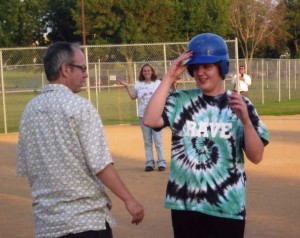#74 – Bob Barkley: First do no harm
It is intriguing to observe our nation’s current on-going debate about medical care – a system that ostensibly follows the ethical principle of “first do no harm.”
It seems that medical care has now digressed to an un-American and unprofessional dictum of “first do not care for the unprofitable.”
How can we “first do no harm” when we have allowed medicine to denigrate into a profit motivated business rather than a basic human right?
When did not doing harm to a business take precedence over not doing harm to an individual’s health? Perhaps what seems so basically humane no longer applies to protecting our environment or caring for the sick. Could I have missed that decision somewhere along the way?
When did we decide that corporations could tax us at will – through uncontrolled and outrageously escalating premiums – and do their taxing without representation of those being taxed? Is this one of our great American values all of a sudden?
When did we decide that we could harm the poor by rationing medical care only to the wealthy and fortunate? Does “America the beautiful” pertain only to our scenery or should it apply equally to our compassion?
Isn’t one of the basic premises of government in a civilized society to protect its citizens against excesses? How does allowing the continuation of a broken system of unconscionable medical care excesses in profit and privilege fit with being civilized?
When did we first decide that we could tolerate armed citizens behaving like terrorists in disrupting civil discourse? What statute was it that slipped by us and sanctioned that sort of threat to our liberty?
Who was it that first proposed that America should slide to the bottom of the developed nations and allow so much harm to be continued? Why have those who call themselves American conservatives become so enamored with the existing evils of our medical care system that they fight so relentlessly not to change them?
What true American is it that would stand in the way of authentic and fundamental doctor-patient care rather than first fret over who might have coverage versus who will not be so lucky?
I don’t recall when we decided to let insurance companies govern our lives and determined that our democratic government should allow such harm to continue. How is it that the huge bureaucratic waste that resides in these companies is somehow tolerable to those who lash out so vociferously at the mythical ineptitude of government?
“First do no harm!” is apparently the biggest myth of all. Providing adequate and affordable medical care to all Americans is both necessary and feasible. We will all need to share in its costs according to our means. Providing for those costs are simply the dues true Americans have agreed to pay to be citizens of our great country and members of our great society.
I have excellent medical coverage – much of it well run by our government. I would do just fine if nothing changed. But “first do no harm” seems fundamentally American to me. Consequently, the system that rewards me so well should be extended to all my neighbors alike. I thought that was what made our country so cherished. Surely civility and rationality will prevail. Surely we can do better. Surely we wish to do no harm. Am I wrong? I guess I will know shortly.
Robert Barkley, Jr., is a counselor in Systemic Education Reform, retired Executive Director of the Ohio Education Association, and began his career as a teacher and coach. He is the author of Quality in Education: A Primer for Collaborative Visionary Educational Leaders and Leadership In Education: A Handbook for School Superintendents and Teacher Union Presidents.






